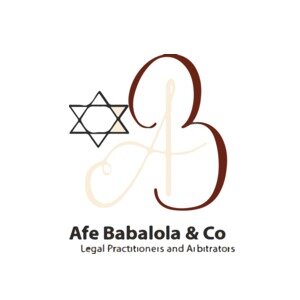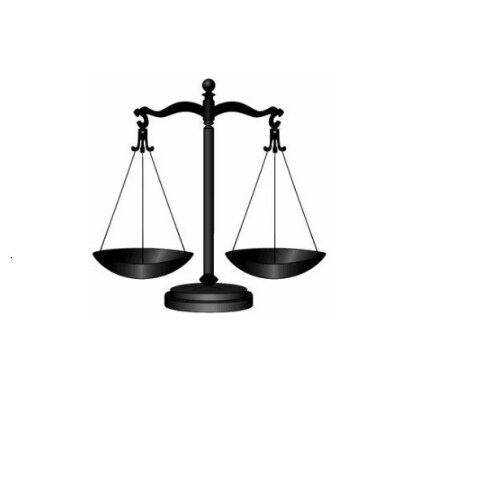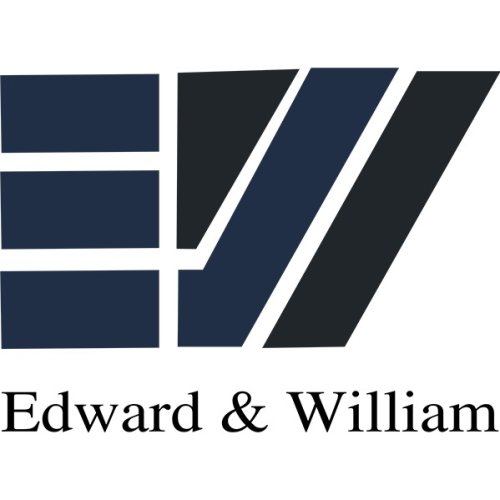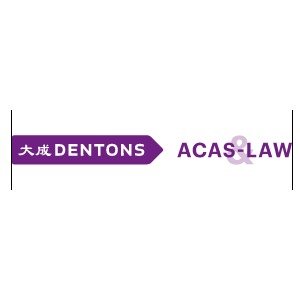Best Debt Capital Markets Lawyers in Port Harcourt
Share your needs with us, get contacted by law firms.
Free. Takes 2 min.
List of the best lawyers in Port Harcourt, Nigeria
About Debt Capital Markets Law in Port Harcourt, Nigeria
Debt Capital Markets (DCM) refer to financial markets where entities raise funds through the issuance of debt securities, such as bonds, debentures, and notes, instead of through equity. In Port Harcourt, a thriving commercial hub in Nigeria's Niger Delta, DCM activity is significant due to the presence of oil and gas companies, large conglomerates, public infrastructure projects, and growing SMEs. The process of issuing and trading debt instruments in Port Harcourt is governed by Nigerian federal regulations as well as local commercial practices, making compliance and expertise crucial for successful transactions.
Why You May Need a Lawyer
Engaging in Debt Capital Markets transactions is complex and subject to multiple layers of regulation. You may require legal assistance in situations such as:
- Structuring and drafting debt issuance documents, including prospectuses and information memoranda.
- Advising on regulatory requirements from the Securities and Exchange Commission (SEC) and Nigerian Stock Exchange.
- Performing due diligence on the issuer or the project.
- Negotiating terms with investors and underwriters.
- Ensuring compliance with tax laws and anti-money laundering regulations.
- Resolving disputes arising from defaults or breach of debt covenants.
- Advising on the restructuring or refinancing of existing debt.
- Guiding public bodies or government agencies in raising funds for infrastructure development through bonds.
In these circumstances, specialized legal advice ensures compliance, mitigates risks, and maximizes the value of your investment or project.
Local Laws Overview
Debt Capital Markets in Port Harcourt are governed by several federal laws as well as industry regulations and guidelines. Some key legal aspects include:
- The Investments and Securities Act (ISA), which governs the issuance and trading of securities in Nigeria and is enforced by the SEC.
- The Companies and Allied Matters Act (CAMA), which outlines requirements for corporate governance, disclosures, and capital raising by Nigerian companies.
- The SEC Rules and Regulations, which contain detailed compliance requirements for registration, disclosure, and reporting for issuers and intermediaries.
- Nigerian Stock Exchange listing rules, if the debt instruments are to be quoted or traded on a public exchange.
- Central Bank of Nigeria (CBN) guidelines, especially for financial institutions and deals involving foreign capital inflow.
- Anti-Money Laundering (AML) laws and the Economic and Financial Crimes Commission (EFCC) regulations.
In Port Harcourt, state-level agencies and the Rivers State government may also play a role in case of public debt issuances for local government projects. Legal counsel knowledgeable in both federal and local legal frameworks can guide parties through the compliance landscape.
Frequently Asked Questions
What is a debt capital market transaction?
A debt capital market transaction involves raising funds by issuing debt securities, such as bonds, to investors. The issuer commits to repay the principal and, usually, periodic interest.
Who regulates Debt Capital Markets in Port Harcourt?
The Securities and Exchange Commission (SEC) is the principal regulator for all DCM transactions in Nigeria, including Port Harcourt. Additional oversight is provided by the Nigerian Stock Exchange and the Central Bank of Nigeria where applicable.
Can individuals invest in debt securities issued in Port Harcourt?
Yes, individuals can invest in publicly issued bonds or notes, subject to eligibility and the specific conditions of each issuance.
What are the common types of debt instruments in Port Harcourt?
The most common types include federal, state, and municipal bonds, corporate bonds, and commercial papers issued by companies and public sector bodies.
What disclosures are required for debt issuances?
Issuers must provide comprehensive disclosures in offering documents, including details about the issuer, use of proceeds, repayment terms, risks, audited financial statements, and regulatory compliance.
What is the role of a trustee in a debt issuance?
A trustee acts on behalf of the bondholders to ensure compliance with the terms of the debt issuance and safeguard investor interests.
Are there tax implications for issuing or investing in debt securities?
Yes, both issuers and investors face tax obligations such as stamp duties, withholding tax on interest, and sometimes Value Added Tax (VAT). Seek legal and tax advice for accurate assessment.
Can foreign investors participate in local debt capital markets?
Yes, foreign investors may participate, but they must comply with CBN and SEC rules relating to foreign investment and capital inflow.
What happens in the case of default on debt repayment?
In the event of default, bondholders may pursue remedies as outlined in the bond terms, possibly including legal action, restructuring, or enforcement against collateral if available.
How do I resolve disputes in Debt Capital Markets transactions?
Disputes may be resolved through negotiation, mediation, arbitration, or litigation in line with the contract terms and applicable laws.
Additional Resources
Consider consulting or obtaining information from the following bodies and organizations:
- Securities and Exchange Commission (SEC) Nigeria for regulatory guidelines and registration details.
- The Nigerian Stock Exchange for listing rules and market procedures.
- Central Bank of Nigeria (CBN) for rules relating to financial institutions and foreign capital.
- Economic and Financial Crimes Commission (EFCC) for compliance with financial crime regulations.
- Rivers State Ministry of Commerce and Industry for state-specific regulations.
- Local law firms in Port Harcourt with expertise in finance and capital markets law.
- Chartered Institute of Stockbrokers for professional advice and certified intermediaries.
Next Steps
If you need legal assistance for a Debt Capital Markets transaction in Port Harcourt, start by identifying your objectives and the nature of your involvement, whether as an issuer, investor, or intermediary. Gather all relevant documentation and approach a reputable law firm with experience in Nigerian DCM transactions. Seek an initial consultation to assess your legal needs, compliance obligations, and risk exposure. Be prepared to discuss the specifics of your project or investment, so your lawyer can provide tailored advice and support you throughout the process. Remember, timely legal guidance can help you avoid costly errors and maximize your chances of a successful DCM transaction.
Lawzana helps you find the best lawyers and law firms in Port Harcourt through a curated and pre-screened list of qualified legal professionals. Our platform offers rankings and detailed profiles of attorneys and law firms, allowing you to compare based on practice areas, including Debt Capital Markets, experience, and client feedback.
Each profile includes a description of the firm's areas of practice, client reviews, team members and partners, year of establishment, spoken languages, office locations, contact information, social media presence, and any published articles or resources. Most firms on our platform speak English and are experienced in both local and international legal matters.
Get a quote from top-rated law firms in Port Harcourt, Nigeria — quickly, securely, and without unnecessary hassle.
Disclaimer:
The information provided on this page is for general informational purposes only and does not constitute legal advice. While we strive to ensure the accuracy and relevance of the content, legal information may change over time, and interpretations of the law can vary. You should always consult with a qualified legal professional for advice specific to your situation.
We disclaim all liability for actions taken or not taken based on the content of this page. If you believe any information is incorrect or outdated, please contact us, and we will review and update it where appropriate.

















